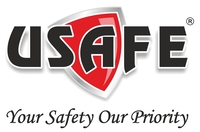Understanding Class "K" and "F" Fire Extinguishing Agents
In our daily lives, fire safety is of paramount importance. From homes to workplaces, the potential for fires is always present. Fire extinguishing agents play a crucial role in curbing these flames and preventing disaster. Two important classes of fire extinguishing agents are Class "K" and Class "F". Let's dive into the world of fire safety and learn more about these agents, without any complex jargon.
Imagine a busy kitchen with sizzling pans and cooking oils. This is where Class "K" fire extinguishing agents come to the rescue. These agents are specifically designed to tackle fires that originate from cooking oils, fats, and grease. When water is used on such fires, it can lead to a dangerous splattering effect and make the fire worse. Class "K" agents, on the other hand, are tailor-made to handle these types of fires effectively.
The science behind Class "K" agents lies in their ability to chemically react with the fats and oils, creating a barrier that prevents the fire from spreading further. These agents are usually found in restaurants, commercial kitchens, and places where cooking is a common activity. They come in portable fire extinguishers, providing a handy tool for tackling kitchen fires.
Class "F" Fire Extinguishing Agents: Battling Hot Fat Fires
While Class "K" agents are specialized for kitchens, Class "F" agents are designed to combat fires involving hot fats and oils in industrial settings. These fires can erupt in food processing units, factories, and any place where large amounts of cooking oils are used for various purposes.
Class "F" extinguishing agents are also formulated to cool down the fire, suppress its flames, and prevent re-ignition. They work by creating a layer on the burning surface, effectively cutting off the fire's oxygen supply and preventing its expansion.
FAQs: Uncomplicated Answers to Common Questions
What is a Class "K" fire?
A Class "K" fire involves cooking oils, fats, and grease catching fire, typically in a kitchen setting.
Do Class "K" agents work on other types of fires?
Class "K" agents are specialized for kitchen fires and may not be effective for other types of fires.
Are Class "K" extinguishers only for commercial kitchens?
Class "K" extinguishers are commonly used in commercial kitchens, but they can also be useful in residential kitchens with a lot of cooking.
What is the difference between Class "K" and Class "F" agents?
Class "K" agents are for kitchen fires involving cooking oils, while Class "F" agents are designed for industrial settings where hot fats are used.
Can I use water on a Class "K" fire?
Water should not be used on Class "K" fires as it can worsen the situation.
Are Class "F" agents safe for the environment?
Many Class "F" agents are environmentally friendly, but it's important to use them as directed to minimize any negative impact.
How do Class "F" agents prevent re-ignition?
Class "F" agents form a cooling layer on the fire, which reduces its temperature and prevents it from reigniting.
Can I use a regular fire extinguisher in the kitchen?
Using a regular fire extinguisher in the kitchen can be dangerous with grease fires. It's best to have a Class "K" extinguisher.
Do these agents replace the need for a fire alarm?
No, fire alarms are crucial for early detection. Fire extinguishing agents are used to control fires once they start.
How do I clean up after using a Class "K" extinguisher?
Cleanup can be messy. It's recommended to contact a professional cleaning service to ensure proper cleanup.
Are Class "K" extinguishers expensive?
The cost varies, but safety is worth the investment. Check with local suppliers for pricing.
Can I use sand on a grease fire?
Sand is not recommended for grease fires as it can't effectively control the fire and might spread it.
Are there any DIY alternatives to Class "K" extinguishers?
Using baking soda may help in a pinch, but it's still better to have a proper Class "K" extinguisher on hand.
Are there any training requirements for using these extinguishers?
While not mandatory, receiving training on how to use fire extinguishers is highly recommended.
Can I use Class "F" agents at home?
Class "F" agents are more suitable for industrial settings due to the nature of fires they're designed to tackle.
How often should I inspect my Class "K" extinguisher?
Regularly check the pressure gauge and ensure it's within the recommended range. An annual professional inspection is also advisable.
Can I use a Class "F" extinguisher on a Class "K" fire?
It's best to use the appropriate extinguisher for the type of fire. Class "F" extinguishers are not specifically designed for kitchen fires.
What should I do if a Class "K" extinguisher is not available?
If a Class "K" extinguisher isn't available, try to smother the fire with a metal lid or use baking soda.
Can I reuse a Class "K" extinguisher?
Most portable fire extinguishers are single-use. Once discharged, they need to be replaced or recharged.
Where can I buy Class "K" extinguishers?
You can find them at fire safety equipment stores, hardware stores, or online retailers.
Do these agents have an expiration date?
Yes, fire extinguishers have a limited lifespan. Check the label for the expiration date or guidelines on replacement.
Can I use Class "K" agents on electrical fires?
Class "K" agents are not meant for electrical fires. Use a Class C or Class ABC extinguisher for electrical fires.
Are these extinguishers easy to use?
Yes, they usually come with simple instructions. Pull the pin, aim at the base of the fire, squeeze the handle, and sweep side to side.
Can I practice using a fire extinguisher?
It's a good idea to practice with a training fire extinguisher to get a feel for using one.
What's the most important thing during a fire emergency?
Staying calm and ensuring everyone's safety. If the fire is beyond control, evacuate and call emergency services.
.jpeg)

.webp)

Comments
Post a Comment